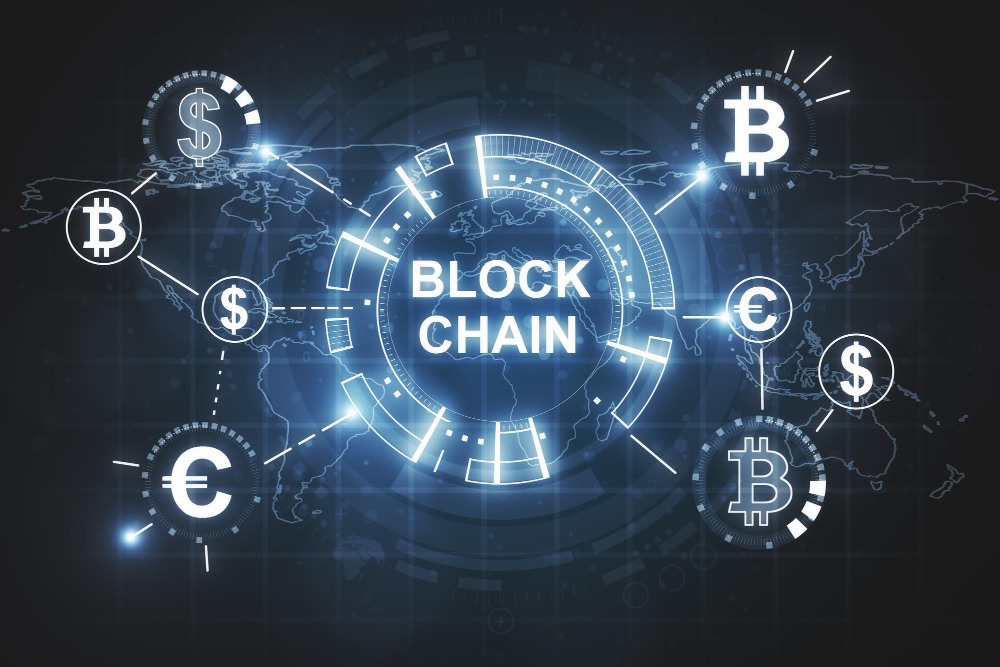A blockchain is essentially a distributed database. Imagine a spreadsheet that is duplicated thousands of times across a network of computers. Then imagine that this network is designed to regularly update this spreadsheet and you have a basic understanding of the blockchain.
Information held on a blockchain exists as a shared — and continually reconciled — database. This way of using the network has a few obvious benefits. The blockchain database isn’t stored in any single location, meaning the records it keeps are truly public and easily verifiable. There is no centralized version of information or data for a hacker to corrupt. Because a blockchain is hosted by thousands or even millions of computers simultaneously, its data is accessible to anyone on the internet.
Blockchain technology is similar to the internet in the sense that it has a built-in robustness. By storing blocks of information that are identical across its network, the blockchain cannot be controlled by any single entity and it has no single point of failure.

How do Blockchains work?
A network of so-called computing “nodes” make up a blockchain. Let’s use Bitcoin’s blockchain as an example. Each node (a computer connected to the bitcoin network that verifies and relays transactions) gets a copy of the Bitcoin blockchain, which gets downloaded automatically upon joining Bitcoin’s blockchain network. Every node on the network is an “administrator” of the blockchain, and joins the network voluntarily. However, everyone on the network has an incentive for participating and following the rules of the network. In Bitcoin’s case, the reward for participation is the chance of winning Bitcoins.
Use cases of Blockchain Technology
The blockchain gives internet users the ability to create value and authenticates digital information. There are countless possible use cases for blockchain technology – most of which are just starting to be explored. Some of the most notable use cases include:
Smart Contracts
Distributed ledgers enable the coding of simple contracts that will execute when specified conditions are met. Ethereum is an open source blockchain project that was built specifically to realize this possibility. Ethereum has the potential to leverage the usefulness of blockchains on a truly world-changing scale.
At the technology’s current level of development, smart contracts can be programmed to perform simple functions. For instance, a derivative could be paid out when a financial instrument meets a certain benchmark, with the use of blockchain technology and Bitcoin enabling the payout to be automated.
The Sharing Economy
With companies like Uber and AirBnB flourishing, the sharing economy is already a proven success. Currently, however, users who want to hail a ride-sharing service have to rely on an intermediary like Uber. By enabling peer-to-peer payments, the blockchain opens the door to direct interaction between parties — a truly decentralized sharing economy results.
An early example, OpenBazaar uses the blockchain to create a peer-to-peer eBay. Download the app onto your computing device, and you can transact with OpenBazaar vendors without paying transaction fees. The “no rules” ethos of the protocol means that personal reputation will be even more important to business interactions than it currently is on eBay.
Crowdfunding
Crowdfunding initiatives like Kickstarter and Gofundme are doing the advance work for the emerging peer-to-peer economy. The popularity of these sites suggests people want to have a direct say in product development. Blockchains take this interest to the next level, potentially creating crowd-sourced venture capital funds.
In 2016, one such experiment, the Ethereum-based DAO (Decentralized Autonomous Organization), raised an astonishing $200 million USD in just over two months. Participants purchased “DAO tokens” allowing them to vote on smart contract venture capital investments (voting power was proportionate to the number of DAO they were holding). A subsequent hack of project funds proved that the project was launched without proper due diligence, with disastrous consequences. Regardless, the DAO experiment suggests the blockchain has the potential to usher in “a new paradigm of economic cooperation”.
Prediction Markets
The crowdsourcing of predictions on event probability is proven to have a high degree of accuracy. Averaging opinions cancels out the unexamined biases that distort judgment. Prediction markets that payout according to event outcomes are already active. Blockchains are a “wisdom of the crowd” technology that will no doubt find other applications in the years to come.
Still in Beta, the prediction market application Augur makes share offerings on the outcome of real-world events. Participants can earn money by buying into the correct prediction. The more shares purchased in the correct outcome, the higher the payout will be. With a small commitment of funds (less than a dollar), anyone can ask a question, create a market based on a predicted outcome, and collect half of all transaction fees the market generates.

